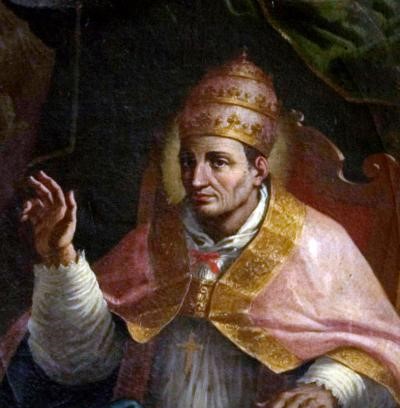
Saint of the Day for 7 July: Blessed Benedict XI
Blessed Benedict XI: Life, Pontificate and Beatification of Dominican Pope
Name
Blessed Benedict XI
Title
Pope
Baptismal name
Nicholas of Bocassio
Birth
c. 1240, Treviso
Death
July 7, 1304, Perugia
Recurrence
7 July
Martyrology
2004 edition
Beatification
April 24, 1736, Rome, Pope Clement XII
Prayer
O God, who hast given to thy people Blessed Benedict XI pope, by his help make us strong and persevering in the faith, to cooperate assiduously in the unity of the Church. Through our Lord Jesus Christ, your Son, who is God, and lives and reigns with you, in the unity of the Holy Spirit, for ever and ever. Amen
The Saint and Mission
Blessed Benedict As a member of the Dominican Order, Nicholas distinguished himself for his erudition and integrity, qualities that led to his being elected pope in 1303. During his pontificate, Benedict XI worked tirelessly to re-establish harmony within the Church and with secular powers. Succeeding Boniface VIII in a period of great tension, he sought to resolve conflicts with the French king, Philip IV, through diplomatic negotiations rather than direct confrontation. This peace mission of his was rooted in a deep desire for unity and reconciliation. Benedict XI also worked to reform ecclesiastical life, promoting discipline and morality among the clergy. He supported religious orders, encouraging a fervent spiritual life and a renewed zeal for evangelization. His concern for the poor and needy reflected his commitment to a Church that was truly at the service of the people of God. His premature death in 1304 interrupted a pontificate that, although brief, left a lasting impression. His beatification in 1736 recognized his heroic virtues and his tireless commitment to peace and justice. Blessed Benedict XI teaches us that the mission of a Christian leader is to be an architect of peace and a guardian of justice, always guided by faith and charity. His life and pontificate are a shining example of how holiness can manifest itself through humble service and dedication to the common good.
The Saint and Mercy
Blessed Benedict XI, known as Niccolò Boccasini before his election as pope, is a model of mercy embodied in ecclesiastical leadership. During his brief papacy, he dedicated himself to promoting reconciliation and peace in a time of great conflict between the Church and secular powers. His mission was characterized by a deep desire for forgiveness and mutual understanding. Benedict XI addressed tensions with the king of France, Philip IV, with a diplomatic approach, seeking peaceful solutions rather than open conflicts. This attitude reflected a deep mercy and a willingness to overcome divisions through dialogue and negotiation. His ability to forgive and work for the unity of the Church showed an open and compassionate heart. His attention to the poor and needy was another expression of his mercy. By promoting charity and social justice, Benedict XI demonstrated a concrete commitment to the well-being of the less fortunate, seeing the face of Christ in them. His life of prayer and service reflected a profound love for God and others, which manifested itself in concrete actions of help and support. Benedict XI’s mercy was also expressed in his attention to the reform of the clergy. He sought to raise morality and discipline among priests, not only through laws and decrees, but by personal example of a virtuous and devout life. His leadership was guided by a true spirit of service and a desire to bring the Church into greater fidelity to the Gospel. The life of Blessed Benedict XI teaches us that mercy is at the heart of the Christian mission. His ability to forgive, promote peace, and serve those in need is a powerful example of how mercy can transform relationships and build a more just and loving community. His legacy continues to inspire the faithful to live with compassion and to always seek the path to reconciliation and peace.
Hagiography
Niccolò di Bocassio was probably born in 1240 in Treviso to a very modest family; but his uncle, a priest at the church of St. Andrew in his hometown, may have influenced his later choices. He apparently entered the Dominican Order in 1257, where he acquired the normal education of members of the Order, later completing his theological studies and becoming a lector, that is, teacher of theology, in the convent schools of Venice and…
